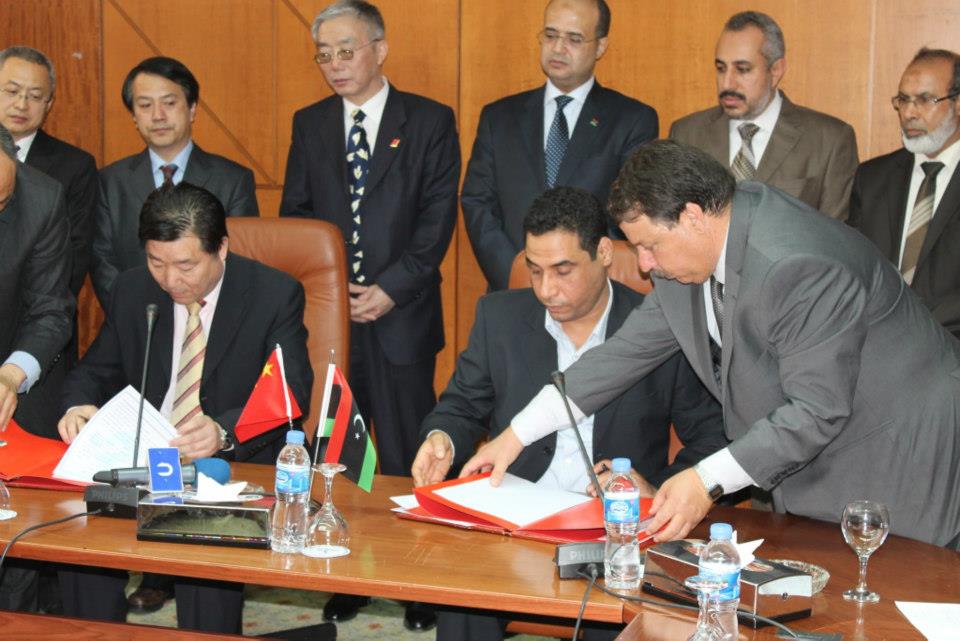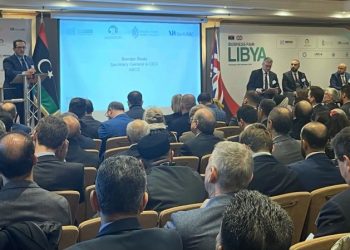By Ayman Amzein.

Benghazi, 12 May 2013:
The Ministry of Housing and the Beijing-based China State Construction Engineering Corporation (CSCEC) signed an agreement . . .[restrict]in Benghazi today to resume work on 20,000 housing units in the city. The buildings are in the Gwarsha and Khadra districts.
Work stopped at the beginning of the revolution but since then efforts by both sides to get it restarted have been stymied by arguments over compensation and increased costs in the intervening period.
“We have reached agreement with the Chinese company to reactivate the project,” said the Housing and Utilities Minister, Ali Sharif. “We need to complete this project to resolve the desperate housing crisis,” he stated. The company, he said, had agreed to deliver the first 1,500 units as soon as possible.
He called the deal a “second profitable chance” for CSCEC.
As to the matter of compensation, he indicated that this has been done by giving the company an additional contract. “We have reached an agreement by which the same Chinese company that started the project would be allowed to carry out the infrastructure for the project, provided that such an agreement helps accelerate implementation of the project.”
The agreement came after a series of multi-party negotiations between Benghazi Local Council, the Chinese company and the Ministry of Housing and Utilities in order to find a formula to to resolve the obstacle of compensation being asked by CSCEC and ensure its return to work.
The meeting was attended by the Deputy Prime Minister, Awad Barassi, Housing Minister Ali Sharif, the Leader of Benghazi Local Council, Mahmoud Abu Raziza, and his deputy, Ahmed Buzribe, as well as CSCEC General Manager Zhang Zuohe and Chinese Ambassador to Libya, Wang Wangsheng.
Also there were the Chairman of the council’s Housing and Utilities Committee, Mustafa Sheikhi, Planning Committee Chairman Awad Subaihi, the housing units’ project manager, Rafi Sharif Qitrani, and the head of its implementation unit, Mahmoud Bashir Ajaj.
The deal, in which the thorny issue of compensation is addressed by granting additional contracts, is seen as opening the door to completing numerous other housing and infrastructure projects with Chinese and foreign companies. [/restrict]











